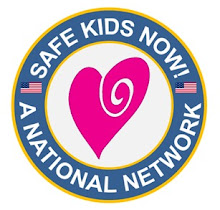For decades, politicians have tried to break the cycle of violence by hiring more police and implementing new laws. Those strategies and other penalties have limitations because they do little to prevent the next generation from following the same destructive path.
City officials seem stumped on how to stop violence. In San Francisco, violence claimed 98 lives in 2008. Mayor Gavin Newsome said: “Nothing that I have tried to resolve has been more frustrating and vexing than solving the issue of why a 14-year-old would take the life of a 15-year-old with a weapon of war.”
The U.C. Berkeley School of Law researchers recently reported gangs terrorizing the same neighborhoods over and over again.
As a crime and violence prevention consultant, I know that gang leaders and drug dealers intimidate neighbors and instill fear against the police so they can control neighborhoods and continue, “business as usual.”
Police often focus on “hot spot” neighborhoods. However, after a sweep to eliminate criminals, neighbors need immediate follow up with “hands on” help to get organized. Without support, new criminals fill the void.
So how can the cycle of violence be broken?
BE A COMMUNITY ACTIVIST
Community activists can play an important role to end the social isolation that fuels crime, drug abuse and violence.
Activists can promote the simple act of neighbors working together which reduces fear and restores hope. Community activists can identify neighborhood leaders and enlist businesses, civic and church groups to support neighbors. They can assist neighbors in running meetings, planning an agenda and motivate neighbors to help strengthen family support.
When people feel connected and develop confidence, they stop the “no snitch” attitude and stop tolerating burglars, rapists, gangs, predators and drug dealers.
KEEP FAMILIES SAFE!
Ideas to keep neighborhood groups going and growing:
1. Neighbors need good communication to stay connected with regular meetings, phone trees, emails and, possibly, a newsletter.
2. Community leaders (neighbors, churches, civic groups) can help plan social gatherings, block parties, establish block parent programs, map neighborhoods for safety, create community gardens, plan youth safety day, implement emergency preparedness and help other neighbors form “Neighborhood Watch” groups.
3. Local officials can promote citizen involvement and reward neighbors for creating safer neighborhoods with trees, benches, swings, improved lighting, etc.
4. Neighborhood and civic groups can sponsor youth poster or essay contests.
5. Business groups or agencies can promote healthy competition between neighborhood groups. They might promote jump rope, basketball, skateboard, singing and dancing contests.
6. Local officials can honor and recognize neighborhood leaders!
Together neighbors provide a check and balance and reduce the social isolation that tolerates bullies, domestic violence and destructive youth behavior. When neighbors work together, they become role models, mentors, speak up and help solve problems.
Citizen involvement creates healthy, safe neighborhoods for families – and helps to reverse the cycle of violence.
~
WHAT YOU CAN DO
- Talk to your local representative and your police chief.
- Offer assistance to help your community.
- Make presentations to local civic, business and youth groups. Get their input.
- Encourage community leaders to focus on community support for families.
Follow the example of Rebecca Kimbel, Area Governor of Toastmasters’ International. She joined Safe Kids Now and became a community activist. She makes presentations throughout Northern California and writes articles for her local newspapers.
By Stephanie L. Mann
For more information: www.safekidsnow.com















